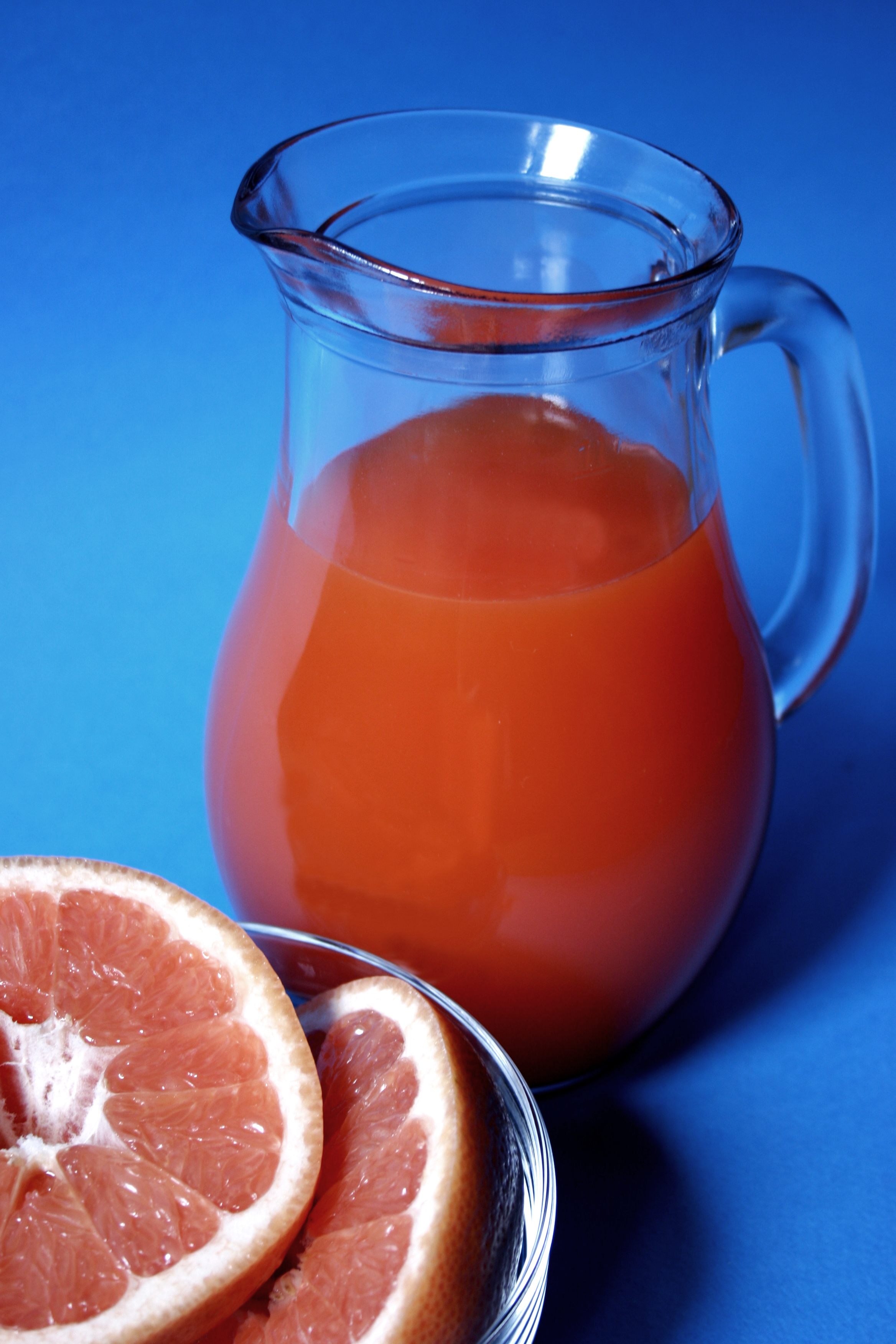 If I suggested to you that a glass of grapefruit or orange juice in the morning might be harming your health, you’d probably think I’d lost my mind. Everybody knows that citrus juice is rich in vitamin C and other antioxidants. You also know that juice is an easy way to boost your fruit and vegetable intake, so it can be part of a healthy diet.
If I suggested to you that a glass of grapefruit or orange juice in the morning might be harming your health, you’d probably think I’d lost my mind. Everybody knows that citrus juice is rich in vitamin C and other antioxidants. You also know that juice is an easy way to boost your fruit and vegetable intake, so it can be part of a healthy diet.
But if you take prescription drugs, you need to think twice before you reach for a glass of juice.
New research shows that many different kinds of juices change the affects of prescription drugs. For a long time, doctors and scientists have known that grapefruit juice and many drugs don’t mix, but it turns out grapefruit juice isn’t the only juice you need to worry about. It is one of the most dangerous, though, so let’s start by looking at why if you take prescriptions, you should avoid grapefruit juice.
How Grapefruit Juice Can Turn Your Prescription Into a Killer
Among juice and drug interactions, grapefruit juice is unique. As you’ll see, many fruit juices can reduce drug effectiveness. However, for some drugs, grapefruit juice can actually make them more powerful. That might sound like a good thing, but it can actually be deadly.
Grapefruit juice alters the digestive compounds in your gut, and that can make you absorb more of certain prescription drugs than is normal. Higher-than-normal absorption rates of any prescription can create unexpected side effects. It can even result in death.
The drugs that are dangerously enhanced by grapefruit juice include:
• Dihydropyridines
• Terfenadine
• Saquinavir
• Cyclosporine
• Midazolam
• Triazolam
• Verapamil
• Lovastatin
• Cisapride
• Astemizole
If you take any of these prescriptions, you should not drink grapefruit juice at all. The drug-enhancing affects of grapefruit juice last up to 24 hours, so it’s just not a safe mix.
Other Juices and Other Drugs
Grapefruit juice isn’t the only concern. In a recent study done at the University of Western Ontario and soon to be presented to the American Chemical Society, researchers showed that many juices actually reduce the effectiveness of some drugs.
Most fruit juices will undermine the effects of drugs used to treat cancer, certain heart conditions, and high blood pressure. Grapefruit, orange, and apple juices all interfered with antibiotics and allergy medications, as well.
The prescriptions that are most inhibited by juices are etoposide (a cancer drug), beta blockers (blood pressure medication), fexfendaine (for hay fever), and the antibiotic ciprofloxacin.
The researchers underscore that this study isn’t exhaustive. There are probably many juice and drug interactions that aren’t yet known.
Have Your Juice and Drink It, Too
So what can you do? Do you have to give up juice altogether?
If you are taking any of the prescriptions listed above, then you should avoid grapefruit juice completely. If you’re taking other drugs, though, you don’t have to give up your favorite juice. You just have to be careful about when you drink it.
Researchers found that fruit juices that affect drug performance only do so if you drink them within two hours of taking the medicine. Drinking juice four hours from taking your medicine had no effect.
That means you can enjoy your orange juice or apple juice—just don’t take your pills with it.
Stay Well,
Mark Rosenberg, M.D.
